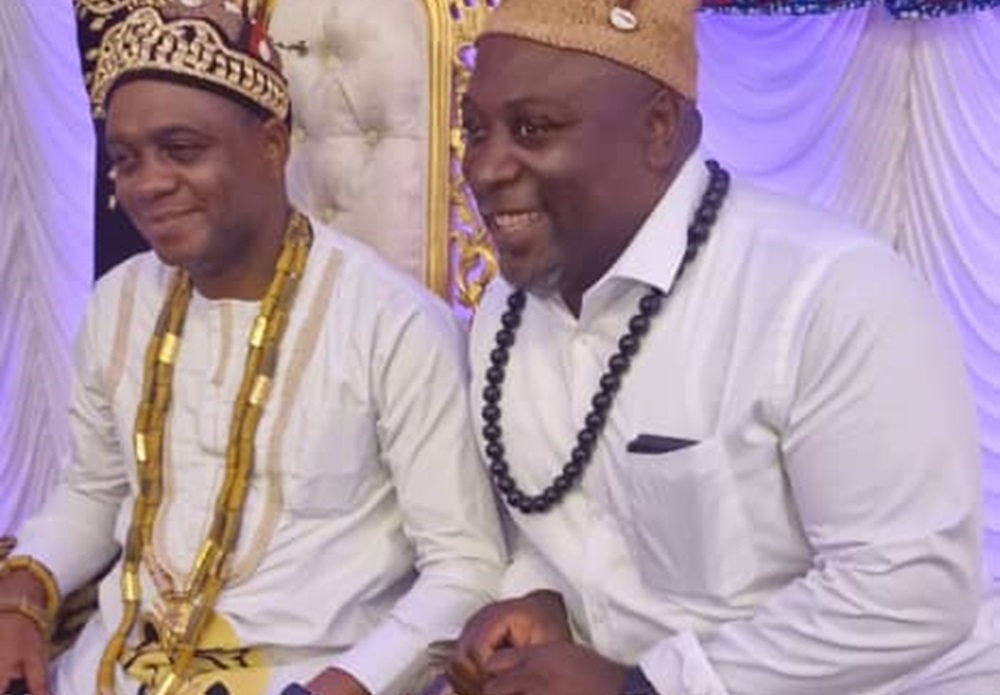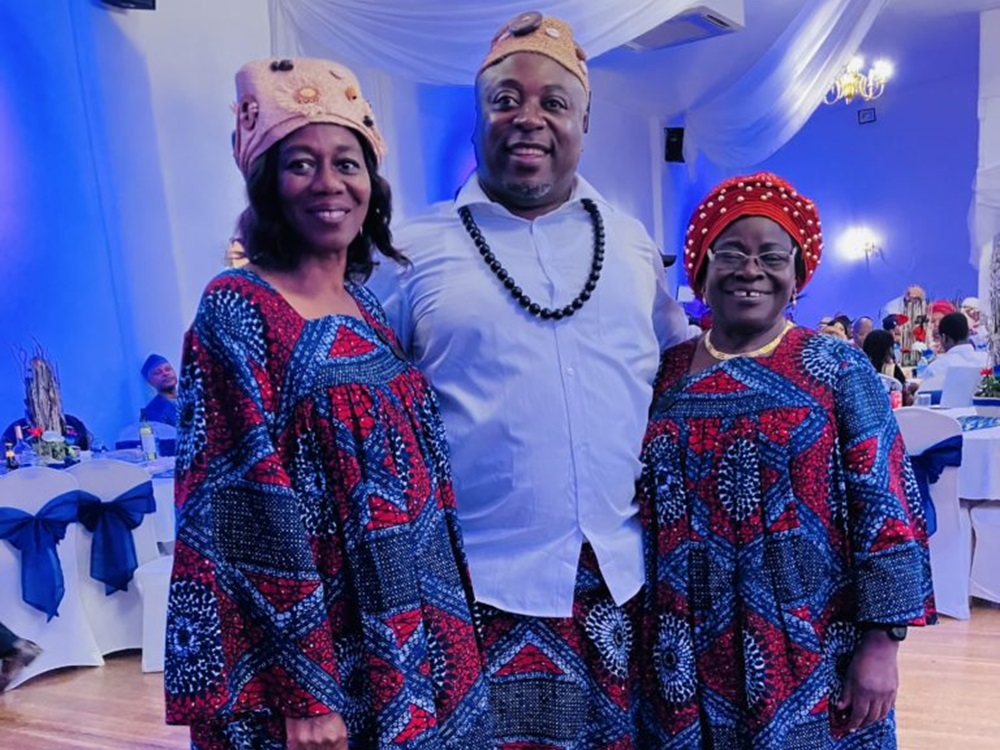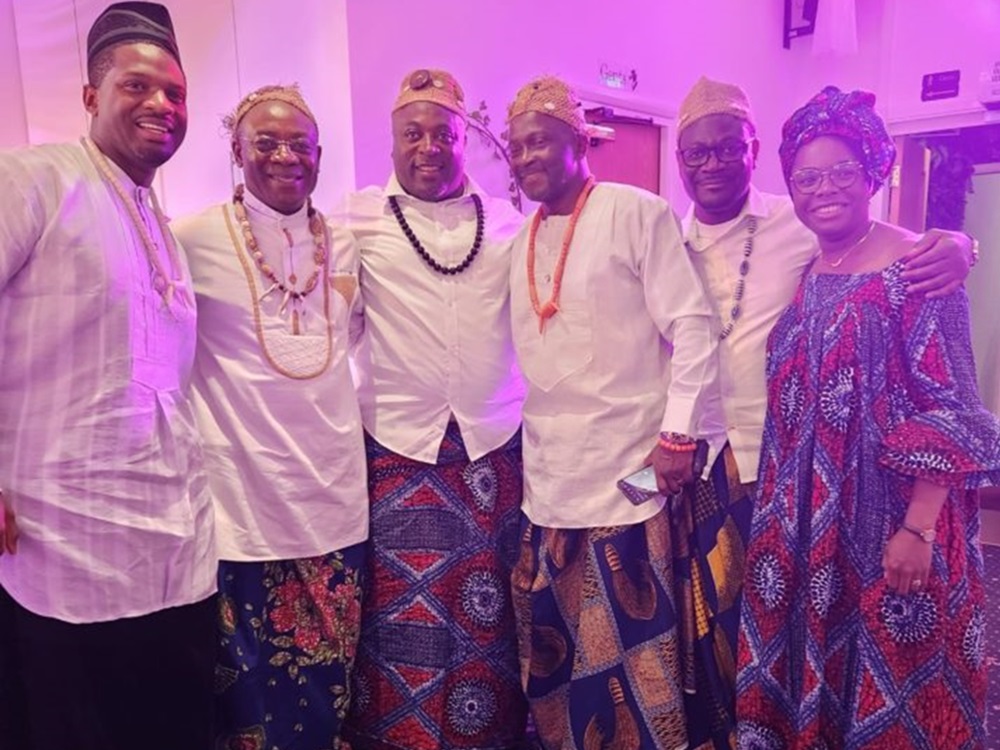Meeting the King

Eric Ngalle Charles
Like the voice in Richard Gwyn’s poem Acrobat, I saw it all, not in the confines of an old shoe; no, I was right there in the Symphony Rooms adjacent to the Leicester City Stadium, watching history unfold. First were the women in blue, red, grey kabbas, red, white, yellow, and grey fascinators, ambling and swaying into the hall like cranes, dancing to the tunes of Ngoma wetuli, their bodies shaking like Liangamene as it thunders down the mountain.
Then, boys and girls, young apprentices upon whom the tradition was handed down, wore white shirts and black chains, moving their shoulders like wrestlers summoned to meet at the Ewoka ya Wezruwa. A young flute player resembling my grandmother with a basket on her back serenaded the hall with Bantu mystics. Then, the notables, with grey straw caps adorned with porcupine quills, beads, and black chains.
In the middle was the great man himself, HRH Chief Dr Robert Esuka Endeley, in majestic, a black robe with golden trims, a crown, chains from the peak of Mount Hvako, and a smile that permeated the room. We greeted them with the tune of Eleeeeeheeey, eleeeh, Croeso, Croeso. Iya Susan Ewnue and her team of Elongi choristers lit the hall.

Uncles and Aunties I had not seen for over thirty years were there. My brothers and sisters, whom I had only met via social networks, were there. We flocked from all corners of the UK, a testament to our strong bond and shared heritage. Our unity and shared heritage were on full display as Mr Mbacko’s family came from Wrexham, Andrew Wose from Dublin, Mola Elive, his Wife, Beauty, and I represented Wales. My mother’s sister, Aunty Emilia and Aunty Hannah Likowo were there. We ate, danced, and poetry was performed, following the tradition of the griots, the storytellers and keepers of our history, of the past.

Although there are plenty of Bakweri people in the UK diaspora, we have small gatherings from time to time. The king’s visit is a momentous occasion, the first time we have come together in such a substantial number to display our culture, skills, and talent. They were all there, from bankers to doctors, musicians, and tech gurus, a testament to our respect and honour for our King and culture.
The King used Whiskey and water. He poured libations and called on the ancestors to witness what was unfolding in Leicester. Then, it was my turn to address the crowd. The cultural committee bestowed me a great honour and asked me to write a poem suitable for the King. I have performed across Wales, the UK, and Europe, but never such an audience. I thought about going down the historical route; after all, the King’s Great, great Grandfather, Kuve Likenye, a revered figure in our history, led the Bakweri people to victory in the Bakweri War in 1891, a significant event that marked our resilience and determination. However, I opted for something personal and urgent, a poem that carries the emotional weight of the existential threat now facing the Bakweri people. The poem’s last stanza reads:
Ngoele will summon its friends and nature recyclers, and the land will blossom again. In the cafés and taverns of Hvako, following your tail to Leicester City, we say, Weejeehli weh bwamu. We swam, and we reached the shores. It is Esonjo Mekoko, and the planting season is over.
Let him rest on your veranda between the sparkling path on the mountain at night and smoke rising at dawn from fiery logs. Tell you a story. A Kinge carried a basket of pollen, and winds from the dept of the forest met him, sprinkling. Eijajandoko (Sleep that peepers the eyes of a child) plagued him. Opening his eyes, he is greeted by giants prostrating: Croeso, our Kinge.
That, for me, was the umbilical cord that links Cameroon and Wales—a day forever planted in my flowerbed of memories.
Support our Nation today
For the price of a cup of coffee a month you can help us create an independent, not-for-profit, national news service for the people of Wales, by the people of Wales.






The former National poet of Wales, Mola Ifor ap Glyn, paraphrased Chinua Achebe’s “When two elephants fight, the grass suffers,” with, “When Eric dances, the grass suffers.” Diolch yn fawr iawn, the mini tremor you heard from Leckwith was me dancing.